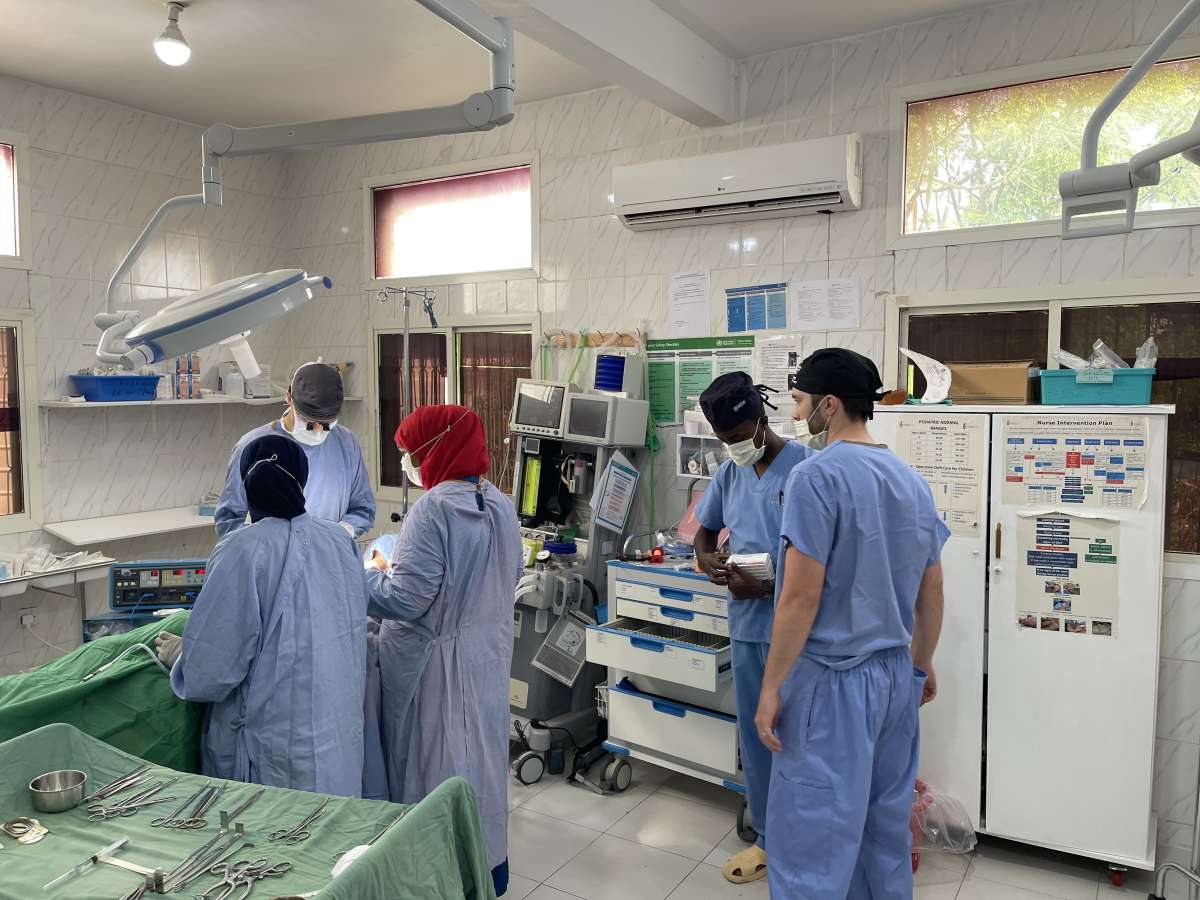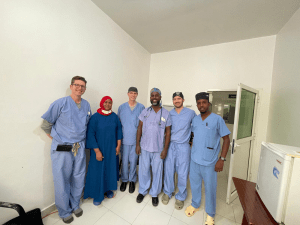Vanderbilt University Medical Center Department of Anesthesia has an ACGME-approved month-long rotation in Kijabe, Kenya. I grew up in Kenya and spent most of my upbringing just a short 3-minute walk down a red dirt path from one of the largest surgical tertiary hospitals in East Africa, Kijabe Hospital. Now, as an anesthesia resident, I have the opportunity to return to this hospital for one month to participate in clinical care, contribute to training at the Kenya Registered Nurse Anesthetist school and conduct research related to a recent anesthesia conference. The first part of my project will be to help offload some of the clinical burden at Kijabe Hospital, a 363-bed non-profit hospital in Kenya. Kenyan physicians and long-term ex-patriot volunteer doctors work alongside Kenyan registered nurse anesthetists (KRNA’s) to provide complex surgical care to a population with increasing surgical needs. My role will be to help supervise the nurse anesthetists alongside anesthesiologist to facilitate patient care in the perioperative setting.
The next part of my project will be providing teaching to the students in the KRNA school at Kijabe Hospital. Mary Mungai, the program head, has given me several lectures centered around the principles of anesthesia to help facilitate the didactic curriculum at the school. In addition to this teaching, I will be participating daily in the education of student nurse anesthetists in the operating room.
Finally, on June 18-20, 2024 there was the first Pan African Nurse Anesthetists Conference (PANAC) in Nairobi. This was the first conference of its kind and largely facilitated by faculty at Kijabe Hospital. I plan to help follow-up on and synthesize some of the data collected at the conference. This three-part project is impactful because it will offload some of the clinical responsibilities of the long-term providers, focuses on teaching local medical professionals and helps further research in low-income countries.
In a local context, Kijabe Hospital itself provides care largely to the Kikuyu and Maasai population throughout the Great Rift Valley Provence in Kenya. However, being a specialty surgical hospital, it serves most of the East African population as a well-established tertiary referral center. This is impactful because according to Meera et al., roughly 93% of the population in Sub Saharan Africa (SSA) do not have access to safe or affordable anesthesia and surgical care. Additionally, Biccard et al., report that the mortality rate for patients in SSA is double that of the global population directly related to lack of safe anesthesia. This is the case even though the population, in general, has a lower-risk profile and is younger. Clearly, this population is significantly at-risk due to a lack of safe anesthesia and surgery. I want to partner with Kijabe Hospital in caring for this population.
However, not only will the patient population directly impact from this project from a clinical perspective, but the long-term healthcare providers and the student nurse anesthetists will also benefit. It is well known that the most effective form of global medical work is through sustainable support of the already established local systems. By facilitating some clinical relief for long-term physicians and Kenyan registered nurse anesthetists, this project will help mitigate possible burnout. Additionally, by participating in teaching, I will be supporting a healthcare population that will be working to serve these patient populations for decades. Finally, according to Adam et al, medical research is a core initiative in furthering advancing care in low- and middle-income countries. By participating in research from the Pan African Nurse Anesthetists Conference, I will be contributing to this endeavor and serving the larger medical community.
I am confident that this project will impact the local medical community at Kijabe Hospital. The partnership between Kijabe Hospital and Vanderbilt University Medical Center (VUMC) is well established. Faculty and residents from VUMC have participated in clinical and educational work at Kijabe Hospital work for over a decade. I think the most impactful part of the project will be the participation in the teaching at the nurse anesthetist’s school. By participating in the education of local anesthesia providers, the impact of providing anesthesia care is much broader and longstanding. Additionally, as discussed above, the impact will go beyond the month I am there as I will be contributing to the research efforts in low- and middle-income countries.
However, I am even more confident that his project will have a personal impact. Although I grew up in Kenya, now as an anesthesia resident, I am looking forward to seeing how the local providers face the challenges of treating complex medical situations in a resource-poor country. Being interested in global health as a career, I know that his project will cement my desire to learn the technical and leadership skills necessary as an anesthesiologist to make a concrete difference in education and anesthesia access across all socioeconomic ecosystems. Additionally, participating in clinical care at one of the largest surgical hospitals in Sub-Saharan Africa, I am confident that I will learn many technical skills and gain significant medical knowledge by taking care of patients with such progressed disease. This learned experience will help me provide better care for my patients in Nashville, TN.






Thanks to the Dox Foundation, I was fortunate enough to not only participate in anesthesia care and education in Kenya for a month, but also in Somaliland.
In Kenya, I lead weekly case discussions with student registered nurse anesthetists. Additionally, I was able to help lead several simulation sessions for not only anesthesia residents, but medical officers and registered nurses as well. These sessions focussed on obstetric emergencies and I was able to lecture the group on the consequences and treatment of high spinal anesthesia. Finally, I was able to assist the consultants in managing 12 operating rooms and offload some of the clinical burden.
In Somaliland, I was able to assist in the clinical care of patients undergoing head and neck surgery. Additionally, I provided in-the-OR teaching for the long term students and nurse anesthetists in the country.
I am extremely grateful for the opportunity funded by the Dox Foundation and hope to return to these countries and continue participating in global anesthesia and surgery.